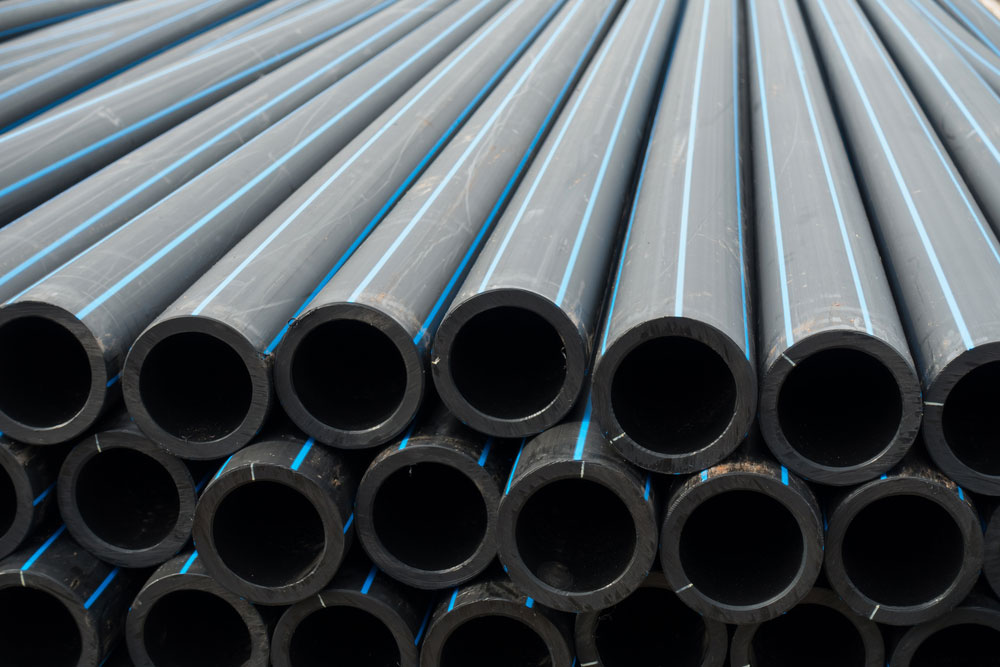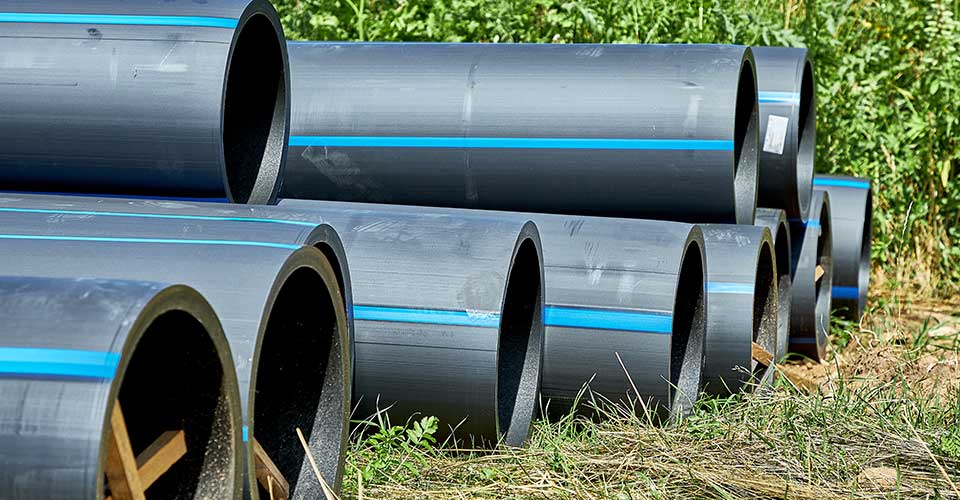Where Contractors Can Get Midland TX HDPE Pipe Fittings in Stock for On-Demand Needs
A Comprehensive Guide to the Different Usages of HDPE Pipeline in Building And Construction and Industry
HDPE pipes have emerged as a critical element in modern-day building and commercial applications. Their one-of-a-kind homes, such as resistance to corrosion and lightweight layout, make them appropriate for a vast array of usages. From water systems to farming watering, HDPE pipelines provide services that enhance efficiency and sustainability. Understanding their varied applications is essential for professionals seeking to enhance infrastructure. What details advantages do these pipelines offer each field?
Water Supply and Circulation Equipments
Water and distribution systems are vital components of metropolitan infrastructure, typically depending on high-density polyethylene (HDPE) pipes for their toughness and efficiency. These systems transportation drinkable water from therapy facilities to consumers, making sure ease of access and security. HDPE pipes are preferred for their resistance to deterioration, chemicals, and extreme temperature levels, which boosts their longevity and minimizes upkeep prices. Additionally, their light-weight nature permits simpler installation and transportation, making them excellent for different metropolitan and country applications.
The versatility of HDPE pipelines enables them to be installed in limited spaces and around barriers, minimizing the requirement for comprehensive excavation (American Plastics HDPE Pipe Manufacturing). Moreover, their smooth indoor surface lowers rubbing losses, enhancing water flow prices. As cities remain to expand, the demand for reputable water system systems boosts, placing HDPE pipes as a sustainable remedy for modern facilities projects. Their tried and tested performance history makes them a favored selection among engineers and city organizers alike
Wastewater Monitoring and Treatment
Effective wastewater administration and therapy are vital for maintaining public health and wellness and environmental quality. HDPE pipes play a crucial function in this procedure as a result of their resilience, resistance to deterioration, and ability to withstand rough chemicals. These pipelines are commonly utilized in numerous applications, consisting of sewer system, stormwater drainage, and wastewater therapy centers. Their lightweight nature facilitates less complicated installment and transport, lowering labor prices and time.
On top of that, HDPE pipes have a smooth indoor surface that minimizes friction loss, advertising efficient circulation rates. They are likewise much less susceptible to leakages and failures contrasted to traditional materials, guaranteeing that impurities are included properly. Their flexibility enables for flexibility in various soil problems, making them suitable for diverse ecological settings. As markets significantly prioritize sustainable methods, the usage of HDPE pipelines in wastewater management systems lines up with objectives for reducing environmental influence and enhancing resource healing.
Agricultural Watering Solutions
In farming setups, reliable watering solutions are important for optimizing crop yields and handling water resources. HDPE (High-Density Polyethylene) pipelines play a crucial duty in modern watering systems due to their longevity, adaptability, and resistance to corrosion. Their capability to endure high pressures makes them ideal for both surface and subsurface watering applications, ensuring consistent water circulation throughout fields.
Farmers can utilize HDPE pipelines in drip irrigation systems, which deliver water directly to plant roots, reducing wastage and promoting healthy development. In addition, these pipelines are light-weight and very easy to mount, lowering labor expenses and setup time. Their long life expectancy and low maintenance needs better enhance useful site their appeal in agricultural techniques.
Furthermore, HDPE pipelines are eco-friendly, as they can be recycled and do not seep unsafe chemicals into the soil. This makes them a sustainable option for farmers intending to embrace green agricultural approaches while taking full advantage of performance.
Industrial Applications and Procedures
Flexibility is a hallmark of HDPE pipes, making them important in different industrial applications and procedures. These pipes are widely used in chemical processing sectors as a result of their exceptional resistance to a variety of corrosive compounds. HDPE's light-weight nature, combined with high tensile strength, permits simple setup and long-lasting efficiency in requiring atmospheres.
In the oil and gas market, HDPE pipes play a vital function in moving hydrocarbons and gases, thanks to their sturdiness and versatility - hdpe pipe suppliers Midland TX. Additionally, they are employed in mining procedures for the transport of slurry and various other materials, where standard piping systems might fail
Furthermore, HDPE pipelines are increasingly used in manufacturing facilities for supply of water lines and wastewater monitoring. Their ability to stand up to severe temperature levels and stress makes them ideal for a variety of commercial procedures. Overall, HDPE pipelines contribute substantially to efficiency and safety and security across diverse industrial applications.
Stormwater Administration and Water Drainage Equipments
Stormwater monitoring and drain systems are essential components in metropolitan facilities, developed to take care of excess rains and lower flooding threats. High-density polyethylene (HDPE) pipelines are increasingly utilized in these systems as a result of their sturdiness, flexibility, and resistance to rust. These pipelines efficiently transport stormwater far from populated areas, reducing surface area overflow and stopping waterlogging.
HDPE's lightweight nature assists in easier installment, decreasing labor expenses and building time. More Info In addition, its resistance to chemicals and environmental stress factors assurances longevity and integrity in numerous climates. In enhancement to traditional home water drainage applications, HDPE pipelines are likewise used in innovative remedies such as eco-friendly framework, that includes rain gardens and permeable sidewalks.

Often Asked Concerns
Exactly How Does HDPE Pipe Contrast to PVC Pipeline in Price?
Generally, HDPE pipe tends to be much more costly than PVC pipeline because of its enhanced toughness and adaptability. Lasting cost considerations, such as upkeep and lifespan, might prefer HDPE in certain applications.
What Is the Lifespan of HDPE Pipes Under Numerous Conditions?
HDPE pipelines normally have a life-span of 50 to 100 years, depending upon ecological conditions, installment practices, and use. Variables such as temperature level, dirt kind, and direct exposure to chemicals can significantly affect their resilience.
Can HDPE Water Lines Be Recycled After Use?
Yes, HDPE pipes can be recycled after usage. The recycling process entails thawing down the material, allowing it to be repurposed into new products, therefore advertising sustainability and minimizing environmental influence linked with plastic waste.
Are There Any Type Of Particular Setup Difficulties With HDPE Pipelines?
Setup difficulties with HDPE pipelines include correct jointing methods, making certain appropriate trench problems, and handling thermal development. Additionally, experienced labor is called for to handle specific tools, which can make complex the installment procedure in different atmospheres.

What Accreditations Should I Look for When Investing In HDPE Water Lines?
When buying HDPE pipes, one need to seek certifications such as ASTM, AASHTO, and ISO, which validate quality and conformity with sector requirements, ensuring resilience and performance in various applications. - Pipe Supplier American Plastics Midland